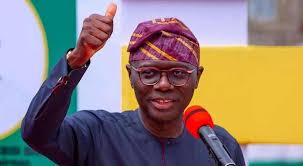Lagos, Rivers, Oyo Collect More VAT than Some Regions, Dominate Q1 2025 Revenue

A striking new report released by data analytics platform StatiSense has shown that just three Nigerian states—Lagos, Rivers, and Oyo—contributed more Value Added Tax (VAT) revenue in the first quarter of 2025 than entire geopolitical zones combined.
The data, sourced from the Federal Account Allocation Committee (FAAC) and published via StatiSense’s verified X (formerly Twitter) account, paints a vivid picture of the country’s deepening economic imbalance and the dominance of certain subnational economies in national revenue generation.
According to the report:
• Lagos State led with an extraordinary ₦819.62 billion in VAT revenue.
• Rivers State followed with ₦278.23 billion.
• Oyo State ranked third with ₦79.78 billion.
Collectively, these three states generated ₦1.177 trillion in VAT—surpassing the entire VAT income of several of Nigeria’s six geopolitical zones.
The report highlights the extent of this disparity in the following comparisons:
• Lagos alone (₦819.62bn) contributed more than the entire South-South region (₦364.99bn).
• Lagos, Rivers, and Oyo combined outperformed:
• North-West (₦68.05bn)
• North-Central (₦52.70bn)
• North-East (₦36.04bn)
• South-East (₦28.37bn)
These figures show that the economic weight of just a few states far exceeds that of entire regions, many of which struggle with lower levels of industrialization, fewer large-scale enterprises, and limited taxable activity.
The data underscores the geographic concentration of economic activity in Nigeria—especially in Lagos, widely regarded as the commercial nerve center of West Africa.
Rivers, buoyed by oil production, and Oyo, with its growing manufacturing and service sectors, complete the trio of economic heavyweights.
The revelation is expected to rekindle debates on fiscal federalism and VAT decentralization, with calls likely to resurface for states to retain more control over revenue generated within their borders. In 2021, similar conversations led to legal disputes between state governments and the Federal Inland Revenue Service (FIRS), highlighting long-standing tensions in Nigeria’s fiscal structure.
Economists and policy analysts have responded to the data with concern and renewed urgency.
“What this data reveals is a persistent structural inequality. Until more states develop viable local economies, the pressure on just a few to carry the bulk of the nation’s revenue will remain unsustainable,” said Dr. Musa Adebayo, a public finance expert.
The findings also spotlight the urgent need for nationwide investment in economic infrastructure, industry, and the informal sector—especially in underperforming zones.
With revenue shortfalls affecting national budgeting and subnational development alike, the clear fiscal dominance of Lagos, Rivers, and Oyo raises both strategic and political questions. As Nigeria navigates the challenges of economic reform, tax policy, and federal restructuring, data like this provides a sobering roadmap of where the country stands—and what it must address moving forward.









